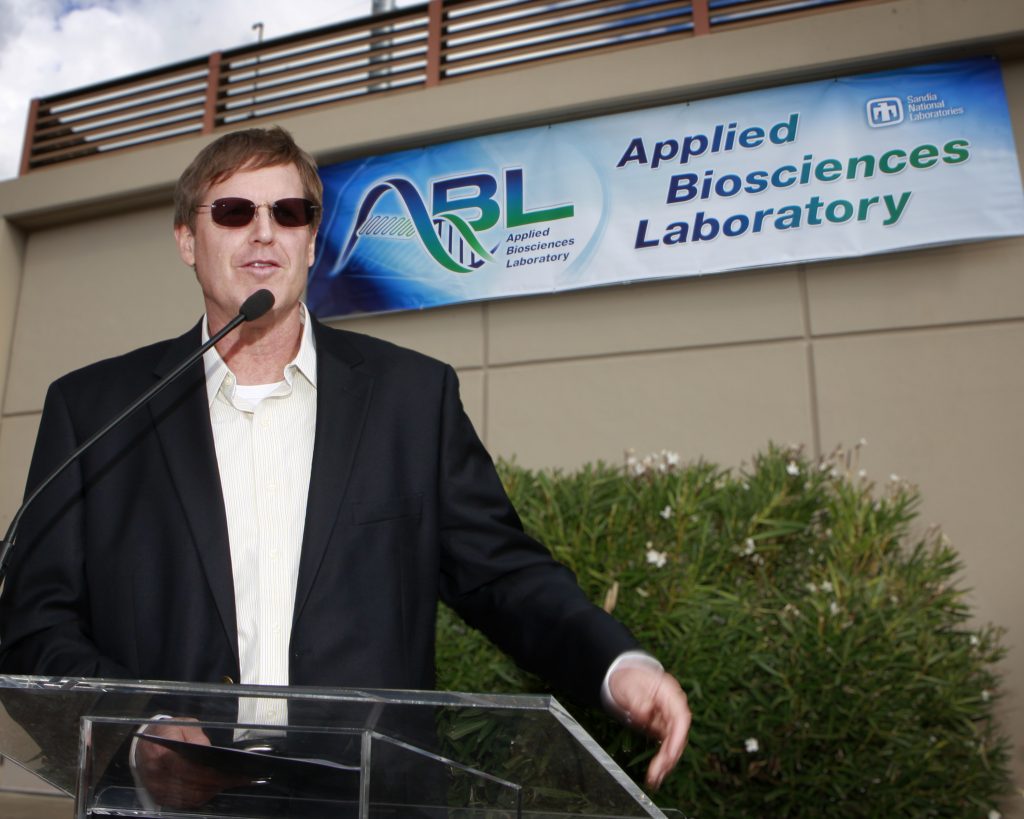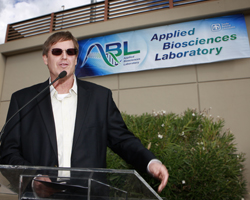New “Applied Biosciences Laboratory” reflects emerging bioresearch mission
LIVERMORE, Calif. — Officials at Sandia National Laboratories in Livermore have announced a change in name for one of its laboratory facilities, signaling the lab’s increased attention on bioresearch.

The Applied Biosciences Laboratory (ABL) was known as the Chemical and Radiation Detection Laboratory for the past 14 years.
“The name change is absolutely appropriate and acknowledges a transition that in many ways has already happened,” said Glenn Kubiak, Sandia’s director of the center for biological and materials sciences. “That transition is the growth of the importance of biology to Sandia’s missions.”
The first iteration of the building now called ABL was the Tritium Research Laboratory, which opened in 1975. “It was a pretty spectacular first decade as we utilized the capability of this building to do unique research in hydrogen that considerably advanced Sandia’s reputation,” said Rick Stulen, vice president of Sandia/California.
In the mid-90’s, said Stulen, it was time for a career change for the building. “(Former VP) Mim John realized there was an opportunity for research into radiation and chemical detection in this building,” Stulen explained. “Following the rededication to the Chemical and Radiation Detection Laboratory, we had another decade or so of very vibrant research into chemical detection.”
Kubiak noted that, in 2004, activities falling under the realm of biology and biological sciences were about $23 million in scope at Sandia (including both the Albuquerque and Livermore sites combined). In the last fiscal year, that number had grown to $38 million.
“I think the name, Applied Biosciences Laboratory, captures the DNA of how Sandia does its work,” he added. “Sandia is committed to deep science, and that science is always connected to a national security problem or application. There are building names all over this campus and in New Mexico, like the Distributed Information Systems Laboratory or the Center for Integrated Nanotechnology, but none are dedicated to the pursuit of biology.
“This name change communicates internally to Sandia and externally to the scientific and national security communities that Sandia has been doing biology, is now doing biology, and will definitely continue to do biology. The train is solidly down the track and we will continue to grow biology.”
